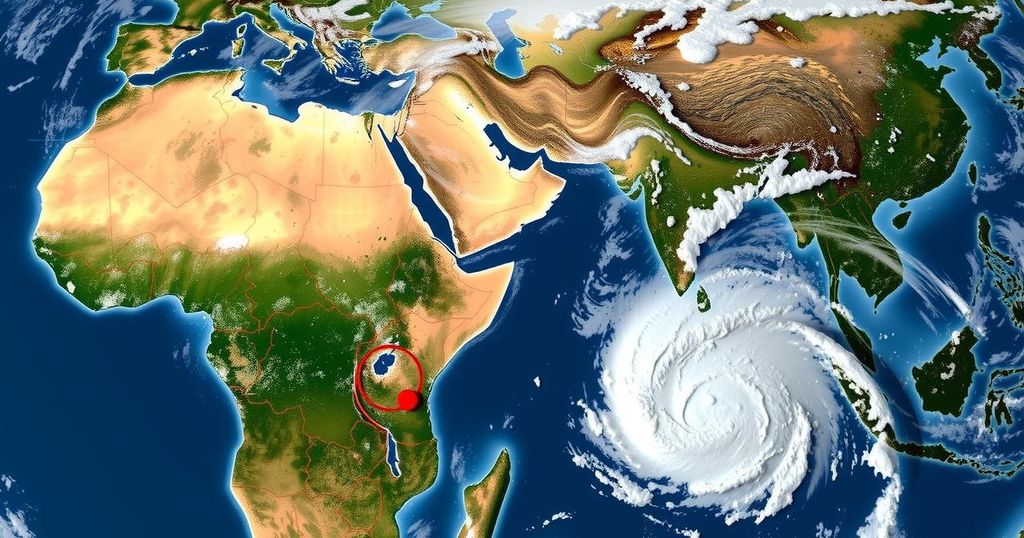Daily reports from the Occupied Palestinian Territory reveal ongoing civilian casualties amidst hostilities, while humanitarian access is heavily restricted. In Syria, freezing conditions exacerbate hardships for the displaced, compounded by flooding. In Ukraine, large-scale attacks on energy infrastructure leave many without essential services during winter. Lastly, Mozambique is facing the aftermath of Tropical Cyclone Chido, with significant relief efforts underway to assist affected populations.
The ongoing conflict in the Occupied Palestinian Territory continues to severely impact civilians, with ongoing reports of fatalities and injuries in Gaza amid relentless hostilities. Humanitarian access remains heavily restricted, as Israeli authorities deny the majority of aid missions—highlighting the dire need for support amidst soaring food prices and worsening living conditions. Aid organizations strive to address the crisis, but the situation continues to deteriorate, with critical shortages of essential supplies.
In Idleb and northern Aleppo, Syria, around 730,000 displaced individuals are facing increasingly harsh conditions due to winter weather. Flooding has damaged thousands of tents in recent weeks, resulting in dire living situations. Many families wish to return to their original homes but are hindered by infrastructure damage and unexploded ordnance. The UN and partners continue to provide aid, despite ongoing risks from landmines and military activities in the region.
Ukraine experienced another large-scale attack on its energy infrastructure, leaving many citizens without heat or electricity during the winter season. The Humanitarian Coordinator condemned these assaults as they exacerbate existing humanitarian issues for vulnerable populations. Emergency assistance has been mobilized to address the immediate needs following the attacks, particularly in hard-hit areas like Kharkiv.
Meanwhile, Tropical Cyclone Chido has affected over 77,000 individuals in Mozambique, resulting in significant agricultural losses and threatening livelihoods. The UN and humanitarian partners are striving to provide essential assistance not only to cyclone victims but also to those displaced by violence in the Cabo Delgado region, where insecurity continues to displace families. Efforts are underway to address the urgent food security crisis affecting affected communities.
The current global landscape is marked by a series of humanitarian crises, stemming from ongoing conflicts and natural disasters. In the Occupied Palestinian Territory, intense conflicts have led to widespread civilian casualties and a deteriorating humanitarian situation, necessitating urgent aid and interventions. In Syria, the prolonged civil war has resulted in numerous displaced populations living in precarious conditions, further complicated by winter weather and landmine risks. Ukraine faces its own challenges as military conflicts disrupt essential services, significantly impacting civilian life during extreme weather. Lastly, Mozambique has been impacted by Tropical Cyclone Chido, exacerbating pre-existing vulnerabilities due to violence and displacement, highlighting the urgent need for coordinated humanitarian assistance across multiple regions.
The humanitarian crises in the Occupied Palestinian Territory, Syria, Ukraine, and Mozambique underscore a profound need for sustained international assistance and intervention. Civilians in these regions face unprecedented hardships, from violence to natural disasters, resulting in dire living conditions and widespread displacement. As civilians continue to suffer, it is imperative that the international community responds with urgency to alleviate the ongoing crises and support those most vulnerable.
Original Source: www.unocha.org






